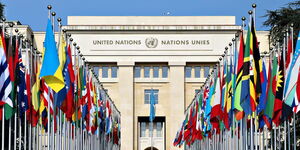The International Monetary Fund (IMF) has outlined a set of reforms the country must implement in order to qualify for a new IMF-supported program.
The guidelines were issued after a team from the lender spent two weeks in the country, scrutinising the country's economic outlook, in preparation for the new program.
For Kenya to qualify for the new support program, the government will be required to restore fiscal credibility, ensure debt sustainability, and strengthen transparency and governance within the public sector, the IMF clarified.
According to the IMF staff team lead Haimanot Teferra, prioritising these reforms will be vital in minimising fiscal, financial, and external risks that have long threatened the country’s economic stability.
“The IMF staff team made progress in taking stock of the latest macroeconomic and financial sector developments, assessing the economic outlook, and holding initial discussions with the Kenyan authorities and other stakeholders on a reform agenda that could pave the way for an IMF-supported program," she stated.
During their visit, the team held meetings with President William Ruto, Treasury Cabinet Secretary John Mbadi, and Central Bank of Kenya Governor Kamau Thugge, among other stakeholders.
"The IMF team also engaged with members of Parliament, officials from various government agencies, and representatives from civil society organizations, private businesses, the financial sector, and development partners," Teferra stated.
“We welcome the Kenyan authorities’ candid engagement and remain steadfast in our commitment to partnering with Kenya to secure a more robust, sustainable, and inclusive economic future for all Kenyans," she added.
The new programme is set to be the successor of the US$3.6 billion (Ksh465.2 billion) one that was terminated prematurely in March.
If approved, the new agreement will play a key role in stimulating economic growth and lowering the cost of living in the country.
Earlier this year, in June, another team from the lender was dispatched to conduct a two-week survey of the country's anti-graft legal and institutional framework, in addition to examining graft risks in fiscal and central bank governance, the rule of law, and market regulations.
According to the IMF, the assessment was key in ensuring that the government reinforces its anti-graft capacity before it enters into a new funding agreement with the lender.
The announcement comes just days after the World Bank urged the government to consider raising some consumption taxes, including excise duty and value-added tax (VAT).
In its latest advisory, the global lender linked the proposal to Kenya's rising pending bills, which increased from Ksh421.6 billion in March to Ksh526 billion by June this year.

KANU to Join Broad-Based Govt, Ruto Reveals News Just In











